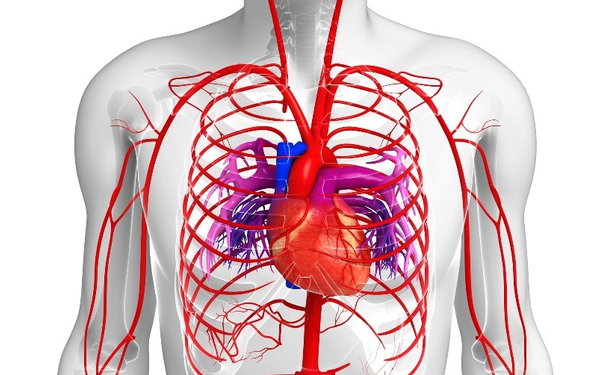The veins in your body play a very important role in your overall health. Veins return oxygenated blood from around your body back towards your heart. Arteries, often confused with veins, are responsible for carrying blood away from the heart to the rest of the body. When arteries are clogged or blocked from plaque buildup, it inhibits your body’s ability to pass oxygen and nutrients to the heart, in turn developing into a heart condition or heart disease. As you may know, veins only become varicose when blood cannot make it back to the heart and collects in the veins. Due to this, varicose veins have very little to do with developing heart disease.
Heart disease is a generic term used to describe any condition or disease that directly affects the heart. These conditions usually stem from an issue with the blood vessels surrounding the heart, however, it’s also possible to be born with a congenital heart defect that develops into a type of heart disease. Some of the most common types of heart disease are Coronary Artery Disease, Angina, and Heart Failure. The signs of heart disease vary greatly due to gender and type of condition. Some of the more common symptoms include lightheadedness, fatigue, or shortness of breath.
How Do Varicose Veins Affect the Heart?
The arterial system of your heart and the venous system of the rest of your body are completely separate from each other. Although all of the veins in your body are connected to the heart or brain in some way, varicose veins usually do not affect the heart. The arterial system is responsible for vascular disease and serious conditions like heart attacks or strokes, whereas the venous system is linked to vein disease or circulation in the lower extremities.
If you have varicose veins and a healthy heart, you shouldn’t worry too much. Surprisingly enough, the heart is not as affected by the veins as the veins are affected by the heart. In fact, there are some cases where patients have experienced advanced leg swelling or developed an infection around the varicose veins due to the poor condition of their heart. It’s because of this that extra precaution should be taken to ensure either condition doesn’t get any worse.
Why Is Vein Treatment Important?
You may be thinking, “what’s the point of treating veins if they do not affect your heart?” Even though varicose veins may not lead to heart disease, does not mean they won’t cause other serious health conditions. If left untreated, underlying venous insufficiency, the cause behind varicose veins, can become progressive and cause venous ulcers, skin discoloration, or even blood clots. It’s important to understand that treating veins can also help relieve painful symptoms that may be negatively impacting your life.
What Are My Next Steps?
Fortunately, there are many preventative steps you can take to benefit the health of your heart and your venous system. Some of these steps include regular exercise, not smoking, and eating a healthy, well-balanced diet and scheduling vein treatment. If you or someone you know may be suffering from varicose or spider veins and would like more information about the causes of venous insufficiency and treatment options, please reach out to us at 888.768.3467 or click here to schedule a consultation with one of our vein specialists today.


